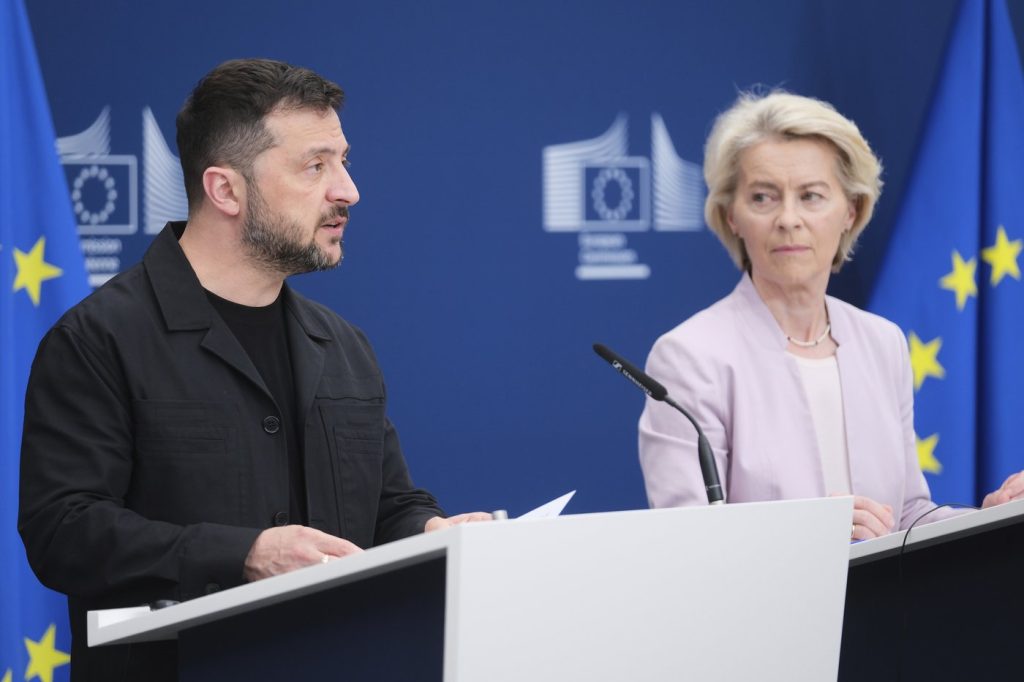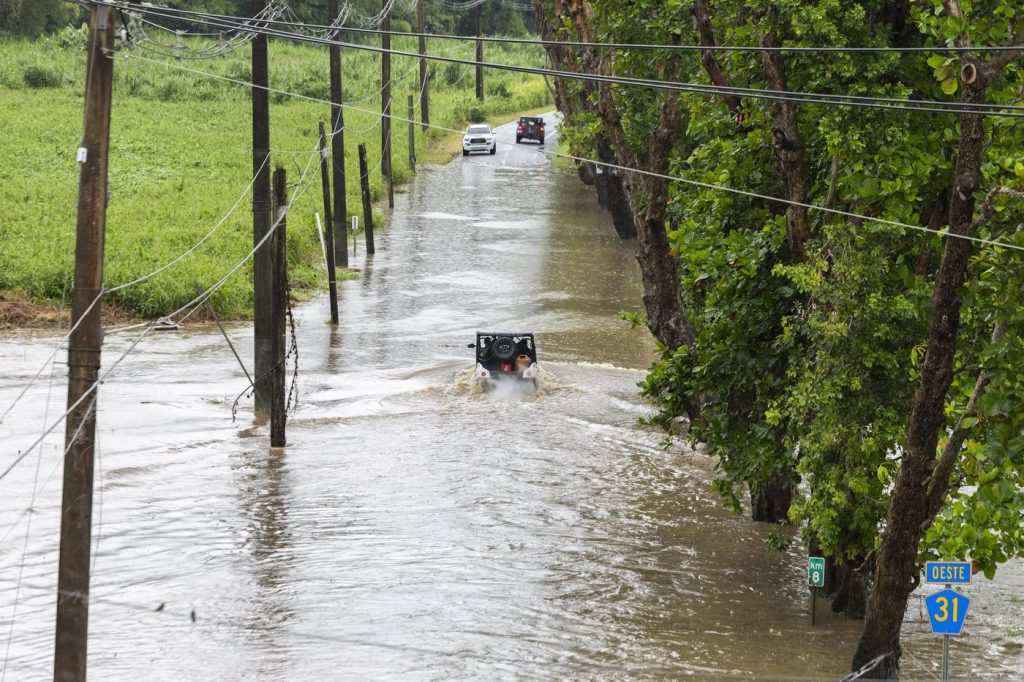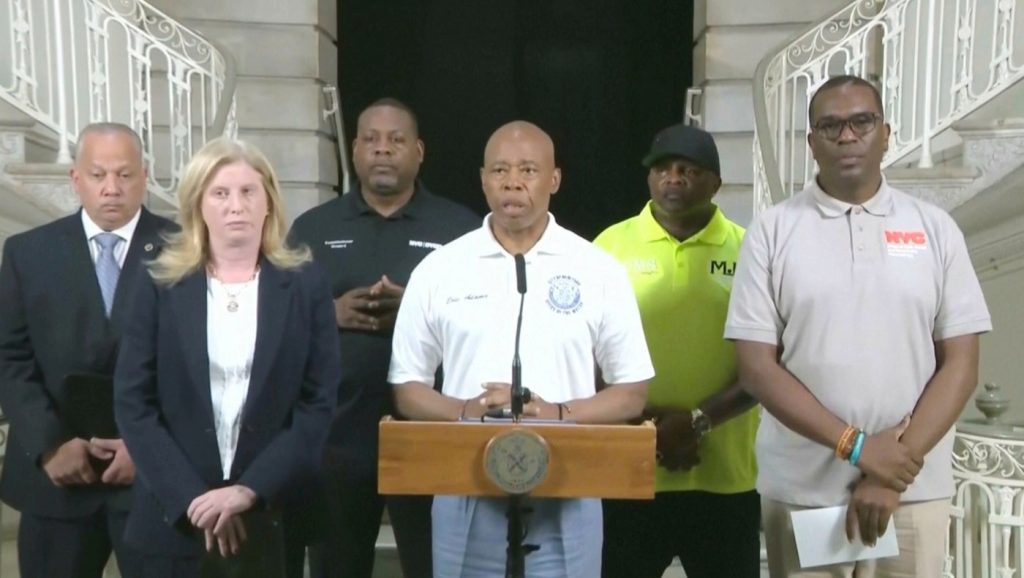KYIV, Ukraine (AP) – European and NATO leaders have announced plans to join Ukrainian President Volodymyr Zelenskyy in Washington for a crucial meeting with President Donald Trump. This initiative aims to present a united front in discussions regarding the ongoing conflict between Ukraine and Russia, focusing on potential U.S. security guarantees that could play a significant role in peace negotiations.
Leaders from Britain, France, Germany, Italy, and Finland are rallying around President Zelenskyy after his notable exclusion from Trump’s recent summit with Russian President Vladimir Putin. Their commitment to stand by Zelenskyy at the White House on Monday appears to be a strategic effort to ensure that this meeting has a more favorable outcome than a previous encounter in February, during which Trump was reported to have berated Zelenskyy in a tense confrontation.
Retired French General Dominique Trinquand commented on the situation, emphasizing that the European leaders are keen to avoid a repeat of the previous Oval Office scene, expressing their full support for Zelenskyy. He suggested that presenting a united front could potentially influence negotiations with Trump, highlighting the power dynamics at play.
During a summit in Alaska, Trump and Putin tentatively agreed that the U.S. and its European allies might offer Ukraine a security guarantee akin to NATO's collective defense principles as part of a broader agreement to resolve the ongoing conflict. Steve Witkoff, the U.S. special envoy, described this development as a "game-changing" moment, marking the first time Russian authorities have shown openness to such guarantees.
French President Emmanuel Macron revealed that the European delegation intends to press Trump to support plans aimed at enhancing Ukraine’s military capabilities. He stressed the need for a credible support format for the Ukrainian army, emphasizing that both Americans and Europeans need to collaborate on training, equipping, and financing Ukraine's forces in the long-term context of peace and stability.
Macron also outlined plans for establishing an allied force in Ukraine, stationed away from the front lines, to assure Kyiv of the ongoing support and discourage further Russian aggression. He described this allied presence as a signal of shared destinies, reinforcing the need for discussions on the commitments possible from allies, as theoretical agreements will not suffice for Ukrainians.
European Commission President Ursula von der Leyen echoed Macron’s sentiments, welcoming Trump's willingness to discuss security guarantees similar to Article 5 of NATO. Both leaders have agreed that the essence of security guarantees matters more than the specific terminology used to define them, emphasizing the necessity for a robust Ukrainian military as a fundamental element of these guarantees.
A collective representation of European leaders— including British Prime Minister Keir Starmer, German Chancellor Friedrich Merz, Italian Premier Giorgia Meloni, and Finnish President Alexander Stubb—signals a strong show of support for Zelenskyy and aims to alleviate fears that Ukraine might be pressured into a less favorable peace agreement.
Analysts predict that the conversations following the Alaska summit have shifted focus away from potential ceasefire discussions, with Putin’s strategy seemingly prioritizing the prevention of Ukraine joining NATO or the EU. This has prompted U.S. Secretary of State Marco Rubio to suggest on NBC’s "Meet the Press" that while a ceasefire is still a possibility, a comprehensive peace deal would be the preferred outcome.
Putin’s reluctance to meet with Zelenskyy directly hinges on the prerequisites for negotiations being satisfactorily established first. He suggested that Kyiv and European capitals might act as impediments to progress through covert interference, adding complexity to the negotiation landscape.
Zelenskyy emphasized the necessity for substantial involvement from both the U.S. and Europe in future negotiations concerning Ukraine’s security. He highlighted that while Ukraine can develop its own military capabilities, there are specific resources that only the United States can provide, indicating the crucial role of U.S. support in any agreement moving forward.
In conclusion, the gathering of multiple European leaders alongside Zelenskyy serves to strengthen Ukraine's negotiating position and emphasizes the critical role of unified support in securing lasting peace in the region. This moment reflects broader geopolitical tensions and alliances shaping the future of European and Ukrainian security amidst ongoing conflicts.












